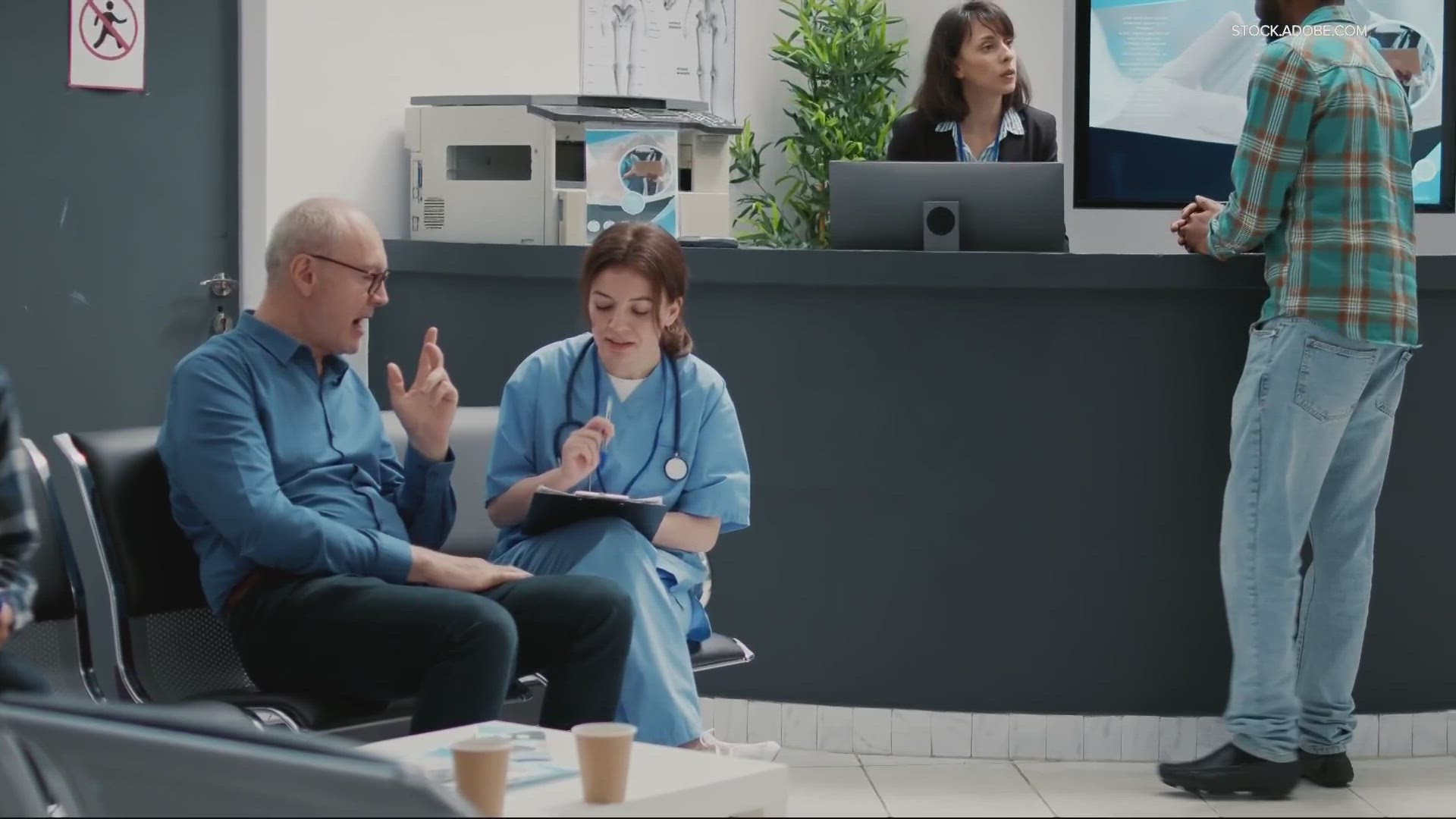PORTLAND, Ore. — Do you have a primary care doctor? How do you find the right one? And when is urgent care or the emergency room the right option? In this week’s Healthier Together, we’re digging into those questions to help you navigate health care before you need it.
"You want to you want to figure out where you're going to get your health care when you're not having a health care problem,” said Dr. James Polo, executive medical director at Regence. “Because in the middle of having a problem, the last thing you want to do is waste time registering, giving information, and trying to figure out what insurance you have and so forth."
Let’s start there, with your primary care provider. This is the health care professional who you establish a relationship with and who knows your health history. It’s the first person you talk to when you have any medical problem that is not an emergency.
A primary care provider is often a doctor or primary care physician, but some nurses and physician assistants also provide primary care.
“It is important to go looking for a permanent care doc when you don't need one,” said Dr. Polo. “Then, when you're having a situation where you need help, you don't have to think about where to go. You can immediately just kind of call your primary care physician and ask for advice.”
How do I find a primary care provider?
Check with your insurance company. Give them a call. You should also be able to find physicians near you, who are in your network, by searching online through your insurer’s website.
Make sure your primary care provider is in your network to avoid any extra costs.
Take some time to do a little research. Evaluate what is important to you about your provider and weigh your options.
“Under most circumstances, the absolute best option is to just see your primary care doc — nine times out of 10 they can address whatever you have, but it also is very helpful to see the same person that knows you, has seen you before and they can keep a record altogether of all the different things that are going on,” Dr. Polo said.
Remember to keep virtual care in mind too. It can be a cost-effective and efficient way to connect with healthcare professionals.
“In general, if there's going to be a need to do some kind of physical examination, then you're probably going to be better off being seen in person versus if it's something that you're going to describe or maybe show on a virtual setting where you don't necessarily need to be physically examined,” Dr. Polo said.
Cost is also a factor in all of this. How much you pay is all dependent on your health plan. Knowing that info before a health issue can help ease stress and even save you money.
A long-term relationship with a primary care provider can help keep you healthier and lower medical costs.
However, an appointment with your family doctor isn’t always the right option.
When is it time for urgent care or a trip to the ER?
Urgent care, or walk-in clinics, help fill the gap when you’re sick or hurt but can’t wait to get into your primary care provider. This mostly includes things like injuries, fevers, infections and other ongoing ailments.
Unless a condition is life-threatening, a trip to urgent care is generally a better use of your time and resources.
“You can always call ahead, explain what's going on and ask them if they would recommend that you be seen there,” Dr. Polo said.
You should call 911 or come to the emergency room right away if you’re systemically sick. The ER is ready, any time day or night, in life and limb-threatening situations.
The American College of Emergency Physicians has useful guidance on when to call 911, but common reasons include:
- The condition is life-threatening and requires attention as soon as possible.
- You are unable to move yourself or the victim without causing harm or further damage.
- You are physically or emotionally unable to drive or be transported to a hospital ER.
If you experience any of the following, ACEP suggests you get immediate medical attention:
- Difficulty breathing
- Chest or upper belly pain or pressure lasting two minutes or more
- Fainting, sudden dizziness, weakness
- Changes in vision
- Confusion or changes in mental status
- Any sudden or severe pain
- Uncontrolled bleeding
- Severe or persistent vomiting or diarrhea
- Coughing or vomiting blood
- Suicidal or homicidal feelings
- Difficulty speaking, or numbness or weakness in any part of your body
- Unusual belly pain

